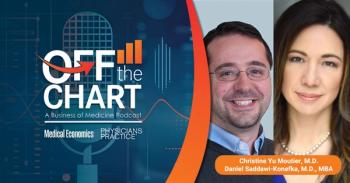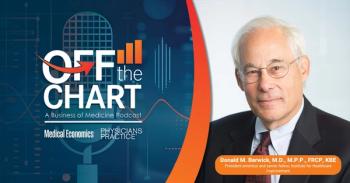
Inbox: Can PAs, NPs Provide Physician Quality Care?
In our recurring blog "Inbox," we get reader feedback on whether or not NPs and PAs can provide equal care to physicians.
Editor's note: We work hard to write about issues that will help physicians run their practices in a manner that is both prosperous and efficient, while still delivering quality patient care. And we are delighted when our readers let us know what they are thinking. This month we are excerpting a Q&A with a researcher that conducted a study that found nurse practitioners (NPs) and physician assistants (PAs) can replicate the care by physicians in community health. We also excerpted from a slideshow on physicians' negative reaction to the Republicans' efforts to repeal and replace the ACA. The articles have been edited for space and are followed by comments made by readers at PhysiciansPractice.com.
Today, millions of Americans rely on community health centers for their healthcare. These nonprofit organizations are generally located in urban, medically underserved areas, and have grown with the Medicaid expansion under the Affordable Care Act (ACA). According to
This increased usage of community health centers, combined with a nationwide physician shortage, has led to increased demand for NPs and PAs in these types of healthcare settings. This has sparked debate as to whether NPs and PAs are providing patients with the same quality care of a physician.
Beth says: "Multiple studies have demonstrated similar findings. I have great respect for my physician colleagues and would respectfully submit that perhaps there is a shift in physician roles. Perhaps physicians' extensive knowledge base might be best utilized in specialties. Primary care is "mundane" 70 -80 percent of the time, and requires a far superior depth of insight and knowledge 20-30 percent of the time, for example [the diagnosis] of strep pharyngitis [versus] rheumatic fever. The world is changing [and I] would suggest a maximum utilization of available resources to provide quality patient care at an affordable price. And whether one is a MD or DO or PA or CNP, each should be able to build a differential diagnosis list of [between] 4-6 potential diagnosis. If a provider cannot, I too would question their ability to provide excellent patient care."
Narayanachar comments: "Bunch of nonsense! Classic example of [garbage in, garbage out]. A [family health center] (FHC) visit costs government or any insurer a lot more than a visit to a doc's office to be seen by a physician! Over here, a FHC is paid almost two times more than a visit to a qualified physician or specialist (for same CPT code). Hospitals have exploited this loophole and routinely collect two to three times in fees for services by [mid-level practitioners] (MLP). [Hospitals] have docs just to sign off on papers and justify outrageous billing supported by bloated [EHR] notes… In my own specialty, I spend more time discontinuing meds, trimming polypharmacy and I [spend a] lot of time getting permission for urgently needed drugs for patients than any other task. [The] government should get out of the business of paying for non-emergency or non-catastrophic care."
Wesley agrees: "Exactly Narayanachar! In my area, the [Federally Qualified Health Center] receives 400 percent more for each Medicaid patient than a private practice…"
Republican Congressmen recently unveiled their plan to repeal and replace parts of the Affordable Care Act (ACA). Thus far, the reaction has been mostly not welcoming.
Overall, the reaction to the AHCA has been controversial at best. Not only have Democrats railed against the bill, but physician advocacy groups, such as the AMA,
Richard says: "They were tasked with repealing the ACA. Period. What they have done is put lipstick on a pig. My issue is not who is covered for what, but rather the 2700+ pages of garbage in the ACA that had little or nothing to do with healthcare but served as a huge power grab by the federal government, specifically the executive branch. Start with a fresh slate and do it now!"
Dr. Larry suggests: "If you want to make everybody HAPPY...attach the SHERWIN AMENDMENT TO THE AHCA.
1. Free medical care for every household with an annual income of less than $20,000.00...No
need for insurance or Medicaid.
2. in every county in every state set up a clinic and make provisions for hospital surgical
procedures, similar to (driver's license facilities).
3. Every licensed healthcare provider would serve one day per month or 12 times per year
to staff the facility.
4. Each healthcare professional would serve in their own vocation and keep track of every
service which they perform at the medical facility or hospital.
5. The rate charged for each service provided would be pre-set and follow managed care
guide lines.
6. The healthcare provider would then receive an income tax credit on their earnings for that
year. It would be an itemized deduction. Hospitals/clinics would receive same tax credit.
7. A committee would be established to set the boundaries, charges, rates, hours of operation,
fees, location of the services, percentages for tax credits for each level of care.
8. Individuals choosing to secure individual insurance coverage should be free to contact any
insurance company in the United States with rates and coverages set by competition."
Louis replies: "Hopefully you are being sarcastic! The above would SUCK!"
Rebecca says: "Explain why you think so. As a doctor? You'd hate to have to volunteer time to clinics? Or you think it's bad for patients? 'It sucks' is kind of vague…."
James replies: "Dr. Sherwin, for this to be useful the clinic would have to have the capacity to serve patients in a timely manner. The medical care providers would have to have enough time with the patients to treat them like humans not cattle…"
Newsletter
Optimize your practice with the Physicians Practice newsletter, offering management pearls, leadership tips, and business strategies tailored for practice administrators and physicians of any specialty.








